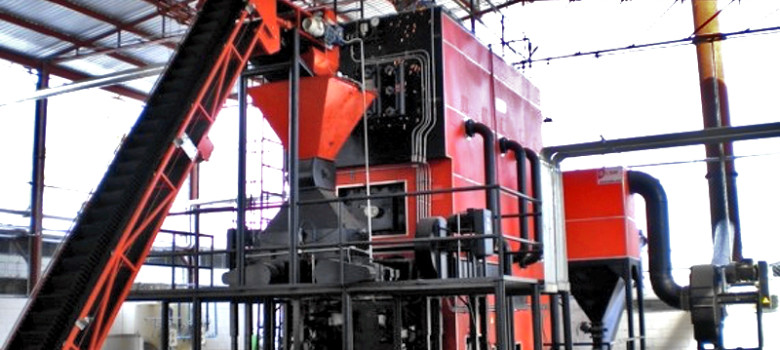
Why biomass?
Biomass involves the burning of any number of organic fuels to create heat and/or electricity. Despite the carbon emissions created by the burning of these fuels, biomass is considered a sustainable energy source. This is because the carbon emitted by the fuel was absorbed during the original growth of the biomass, and unlike fossil fuels, this process occurred fairly recently, creating a cyclical, net carbon neutral process.
Of course, this process is slightly complicated by cultivation and transport, which means that biomass always produces some level of carbon emissions – yet the levels are much lower than fossil fuels, making them an excellent way to create low carbon energy. The Carbon Trust says that biomass produces around 5% of the emissions that heating oil and natural gas produces when considering space heating.
Advantages of commercial biomass boilers for your business
- There are two big pluses for biomass fuel over many others – The cost per kWh of fuel is generally lower, even in some cases when compared to gas. There tends to be less price volatility with biomass as well, so you can be a lot more sure of the price of fuel for the future than you can with fossil fuels, making it a lot easier to budget for your business.
- For those companies affected by climate change-related legislation, such as the Carbon Reduction Commitment or the Emissions Trading Scheme, biomass can be a great way to meet your obligations. Biomass heating can also improve the energy performance of a building, crucial if you need to improve your Energy Performance Certificate.
- There are also a number of advantages in the wider community – the fuel often comes from a fairly local and diverse range of sources, helping the local economy. Using waste fuels reduces landfill waste and can have a positive effect on the local ecosystem.
- You may benefit from the Renewable Heat Incentive.
Disadvantages of biomass
- Biomass installations need a lot of space. The boilers themselves are larger than standard, equivalent output gas and oil boilers, plus the storage space required for the fuel is much greater. The maintenance required is often greater, both from yourselves as a business and from the maintenance company.
In this section you can find out more about:
Biomass Fuels
Biomass Delivery Systems, Delivery Methods and Fuel Stores
Maintaining your Biomass Boiler












No Comments yet! Be the first one.